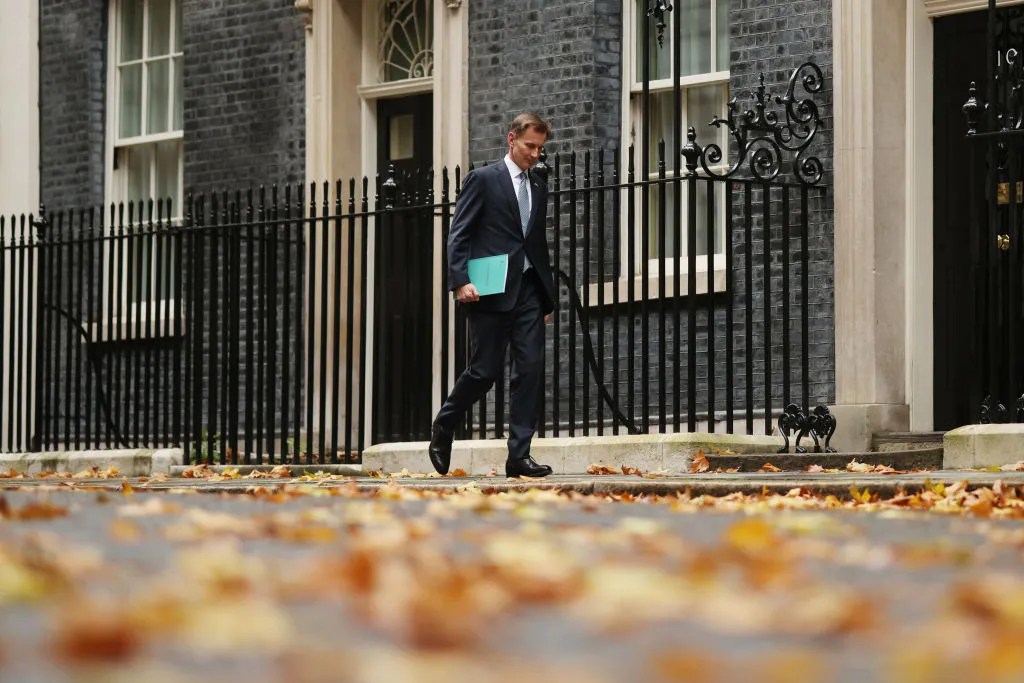This morning’s release from the Office for National Statistics shows the UK economy grew by 0.3 per cent in January – an improvement on December 2022 figures, which saw the economy contract by 0.5 per cent. There are no revisions to the last update: the UK still avoids the technical definition of recession, and January’s growth was higher than expected (the consensus was that it would be 0.1 per cent). But overall, the economy remains stagnant: the three months to January produced precisely zero growth.
What really sticks out in today’s release is just how dependent the UK economy is these days on one-off interruptions. January’s rebound is largely credited to the return of a ‘full schedule of fixtures’ for the Premier League, after December saw a suspension of matches for the FIFA World Cup. The arts, entertainment and recreation sectors grew by 3.4 per cent in January, while consumer-facing services grew by 0.3 per cent – both largely due to the 8.9 per cent boost in sports, amusement and recreation activities once football resumed its normal schedule.
Similar to an additional bank holiday, you would expect to see a temporary change in schedule for one (or multiple) sectors reflected in monthly GDP figures. It’s a reminder that monthly updates can be misleading if they are not assessed as part of a bigger picture – you need more than one monthly update to craft a narrative about the resilience of the British economy. But with so little growth happening elsewhere in the economy (production output fell by 0.3 per cent in January, construction by 1.7 per cent), these changes stand out much more – and arguably have disproportionate power to tip the monthly data into growth, or into a contraction. Strikes are having a similar impact, too: transport and storage services had a bump in January, growing at 1.6 per cent, largely due to recovery from walkouts in December. This does not bode well for February's monthly update, where there is likely to be more strike action.
January’s update leaves the economy 0.2 per cent below its pre-Covid levels in February 2020. Yesterday the British Chamber of Commerce predicted that the economy would not fully recover until Q4 – next year. Its quarterly forecast was more optimistic than the previous one however, suggesting a 0.3 per cent contraction of the UK economy (rather than 1.3 per cent), keeping the UK out of recession. But if economic growth remains as stagnant as it has been for months on end, we could find ourselves falling just short of a full recovery for some time to come.
Chancellor Jeremy Hunt will have to address this at next week’s Budget – but don’t expect any major changes to address growth just yet. Apart from some updates to capital allowances for businesses – mainly to off-set the pain of losing the ‘super-deduction’ – this is not expected to be a Budget with major tax cuts or giveaways. Despite reports that Hunt is working with a bigger surplus than expected, it’s thought that he’s already spent quite a bit of it, with freezing fuel duty, extending the Energy Price Guarantee for another few months, and increasing defence spending already taking the Chancellor to around the £10 billion mark.
All eyes will be on the Office for Budget Responsibility's updated growth forecasts next week, which are expected to be more optimistic than last autumn’s update. But with the prospect of recession still looming, Hunt may find the pressure only builds on him to take more action, rather than leave any tentatively optimistic news to the forecasters.







Comments